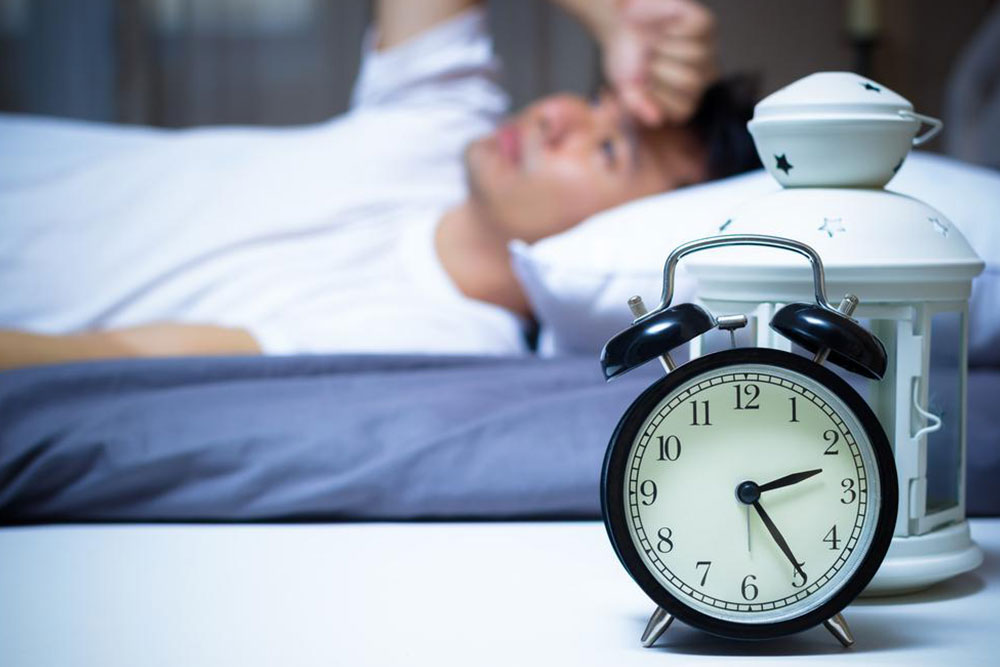Comprehensive Overview of How Sleep Disorders Affect Overall Health and Well-Being
This comprehensive article explores how sleep disorders impact overall health, mental well-being, and daily life. It highlights common sleep problems, their causes, and effective strategies for improving sleep quality. Emphasizing the importance of sleep hygiene and medical intervention, the article aims to raise awareness and promote better sleep practices for optimal health.

Sleep is a fundamental aspect of human health, playing a crucial role in physical repair, cognitive function, emotional regulation, and overall vitality. However, many individuals experience sleep disturbances that can significantly impair their ability to attain deep, restorative sleep. These disruptions are often multifaceted, stemming from a variety of biological, psychological, and lifestyle factors. Understanding the nature of sleep disorders, their causes, and their impacts on health is essential for promoting better sleep hygiene and improving quality of life.
Sleep disturbances can arise from natural biological changes associated with aging. As people grow older, their sleep cycles tend to become lighter and less efficient, leading to fragmented sleep and reduced deep sleep stages. In women, menopause often brings about hormonal fluctuations that further disrupt sleep patterns, resulting in issues such as insomnia or night sweats. Medical conditions like chronic pain, asthma, and neurological disorders can also interfere with restful sleep, making it difficult for individuals to sustain uninterrupted rest through the night.
Besides biological factors, mental health challenges play a significant role in sleep quality. Conditions such as depression, anxiety disorders, bipolar disorder, and post-traumatic stress disorder (PTSD) are closely linked with sleep problems. These mental health issues can cause difficulty falling asleep, frequent awakenings, or early morning awakening, further exacerbating emotional distress and cognitive impairments. Sleep and mental health are interconnected, creating a cycle where poor sleep worsens psychological health, and mental health struggles, in turn, impair sleep quality.
In addition to health conditions, lifestyle choices can profoundly influence sleep patterns. Excessive sleep or oversleeping, irregular sleeping schedules, and shift work are among the leading lifestyle factors disrupting circadian rhythms. Engaging in technology consumption before bedtime, such as using smartphones, tablets, and computers, exposes individuals to blue light, which suppresses melatonin production — the hormone responsible for regulating sleep-wake cycles. Consuming stimulants like caffeine or alcohol close to bedtime can also impair sleep quality, leading to difficulty falling asleep or experiencing restful sleep.
High-quality sleep is vital for maintaining overall health and well-being. During sleep, the body undergoes essential repair processes: tissues regenerate, immune function is bolstered, and hormonal balances are restored. Sleep supports cognitive functions like memory consolidation, learning, decision-making, and emotional resilience. Conversely, chronic sleep deprivation or poor sleep quality can have severe health consequences, including increased risks of obesity, type 2 diabetes, cardiovascular diseases, and stroke.
The impact of sleep disorders extends beyond physical health, affecting mental acuity and emotional stability. Lack of restorative sleep can lead to short-term issues such as memory lapses, poor concentration, decreased problem-solving skills, and mental fog. Over time, ongoing sleep problems may contribute to serious mental health concerns, including depression and anxiety. Academic performance and work productivity often decline when sleep quality suffers, further impairing individual and societal functioning.
Common sleep disorders afflicting millions worldwide include insomnia, sleep apnea, narcolepsy, and restless legs syndrome. Insomnia, characterized by difficulty falling asleep or staying asleep, is the most prevalent sleep disorder. Sleep apnea involves repeated pauses in breathing during sleep, leading to fragmented rest and daytime fatigue. Narcolepsy causes sudden sleep attacks and disrupted sleep architecture, while restless legs syndrome leads to uncomfortable sensations and an irresistible urge to move the legs, often disrupting sleep continuity.
The prevalence of these disorders tends to increase with age. As individuals age, their sleep cycles tend to weaken, resulting in lighter sleep, frequent awakenings, and a decline in REM sleep phases. Women, especially during menopause, face increased risks of sleep disruptions due to hormonal fluctuations, hot flashes, and mood swings. Children and adolescents are not immune, as sleep problems can also interfere with growth, development, and academic achievement.
Health professionals generally recommend that adults aim for 7 to 8 hours of sleep per night, although individual needs can vary. Sleep requirements are influenced by genetics, lifestyle factors, and overall health status. Developing good sleep hygiene practices — such as maintaining a consistent sleep schedule, creating a calming bedtime routine, and optimizing sleep environment — can significantly improve sleep quality. For those suffering from persistent sleep problems, seeking medical advice is essential. Treatments may include behavioral therapy, lifestyle modifications, or medical interventions like continuous positive airway pressure (CPAP) therapy for sleep apnea.
In conclusion, sleep is a cornerstone of health and well-being, impacting everything from physical strength to mental clarity. Recognizing the causes and consequences of sleep disorders empowers individuals to adopt better sleep habits and seek appropriate care. Prioritizing good sleep hygiene and addressing underlying health issues can lead to a healthier, more vibrant life. Sleep problems are treatable; understanding them is the first step toward restoring restful, rejuvenating sleep every night.





